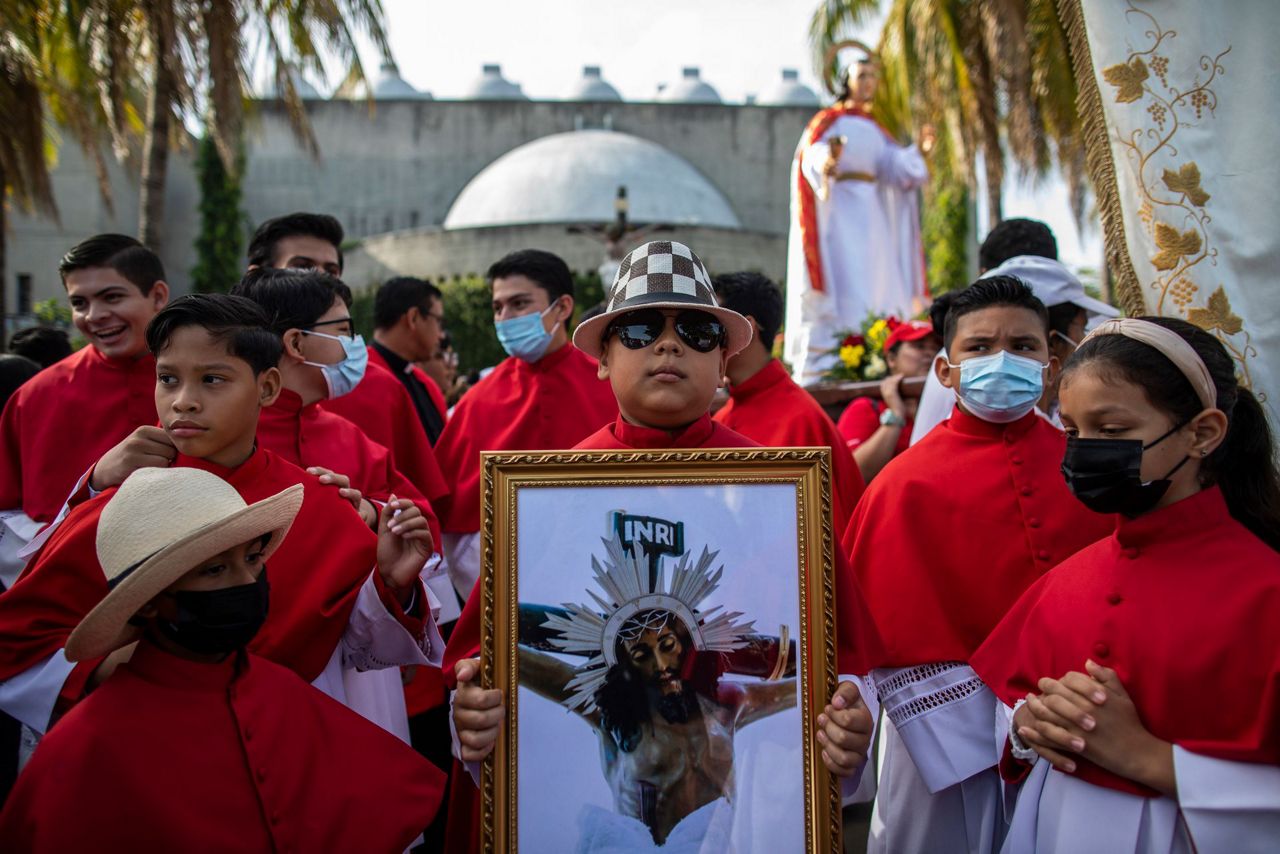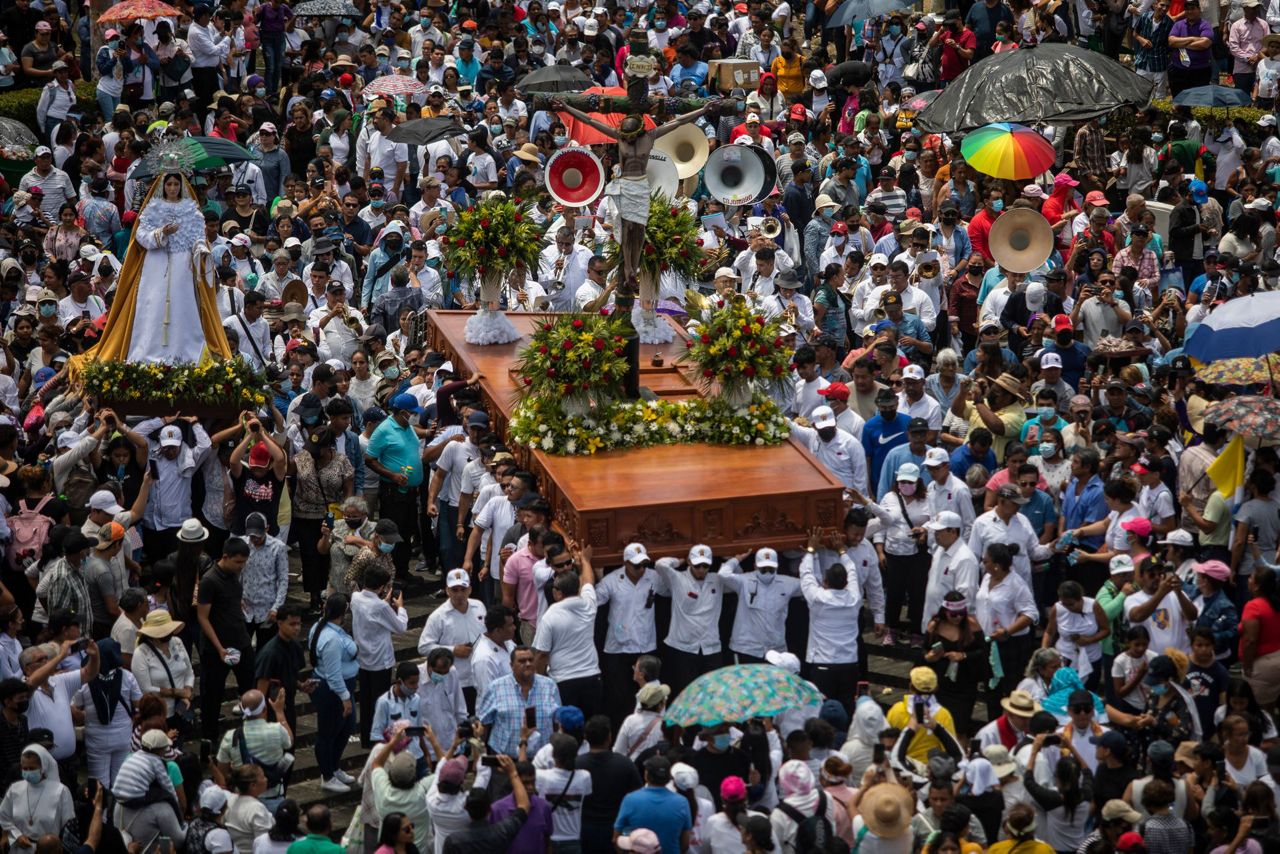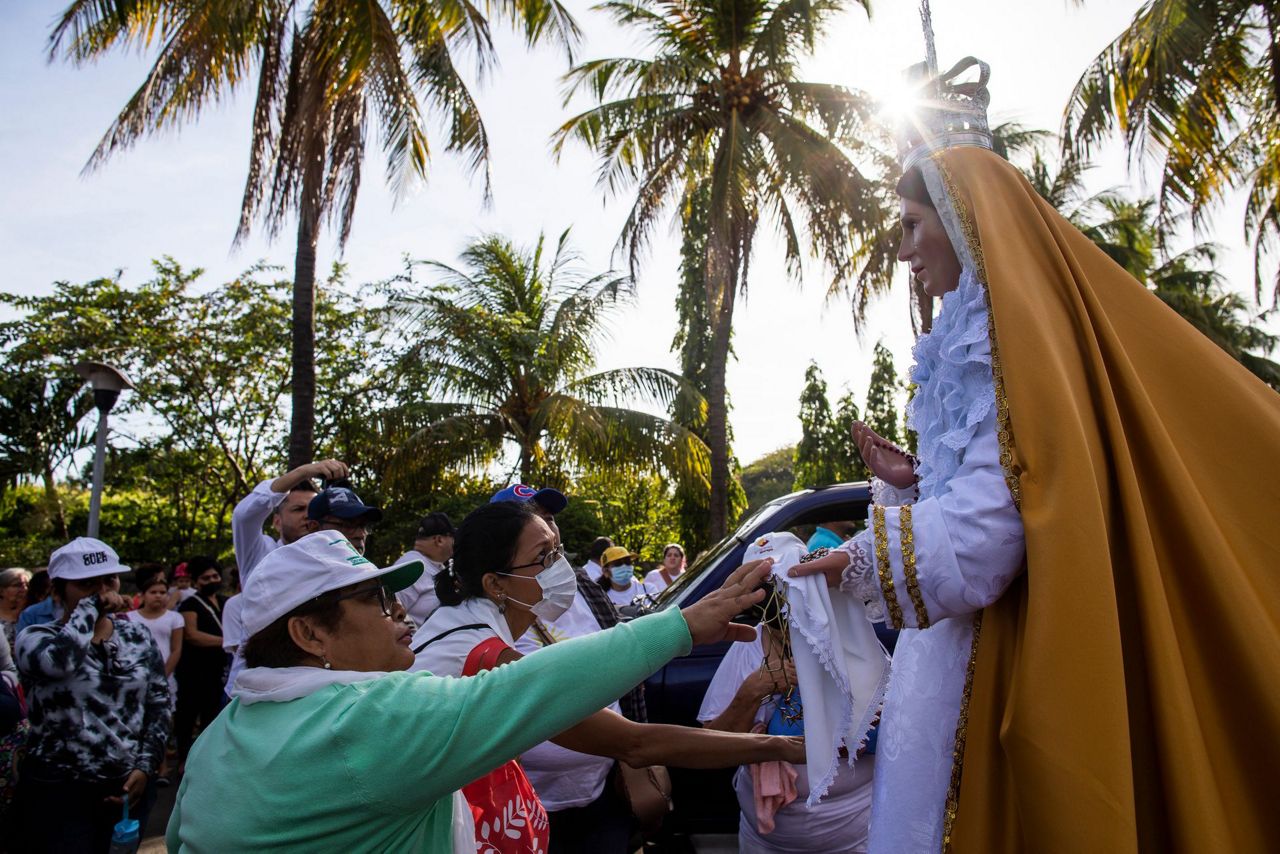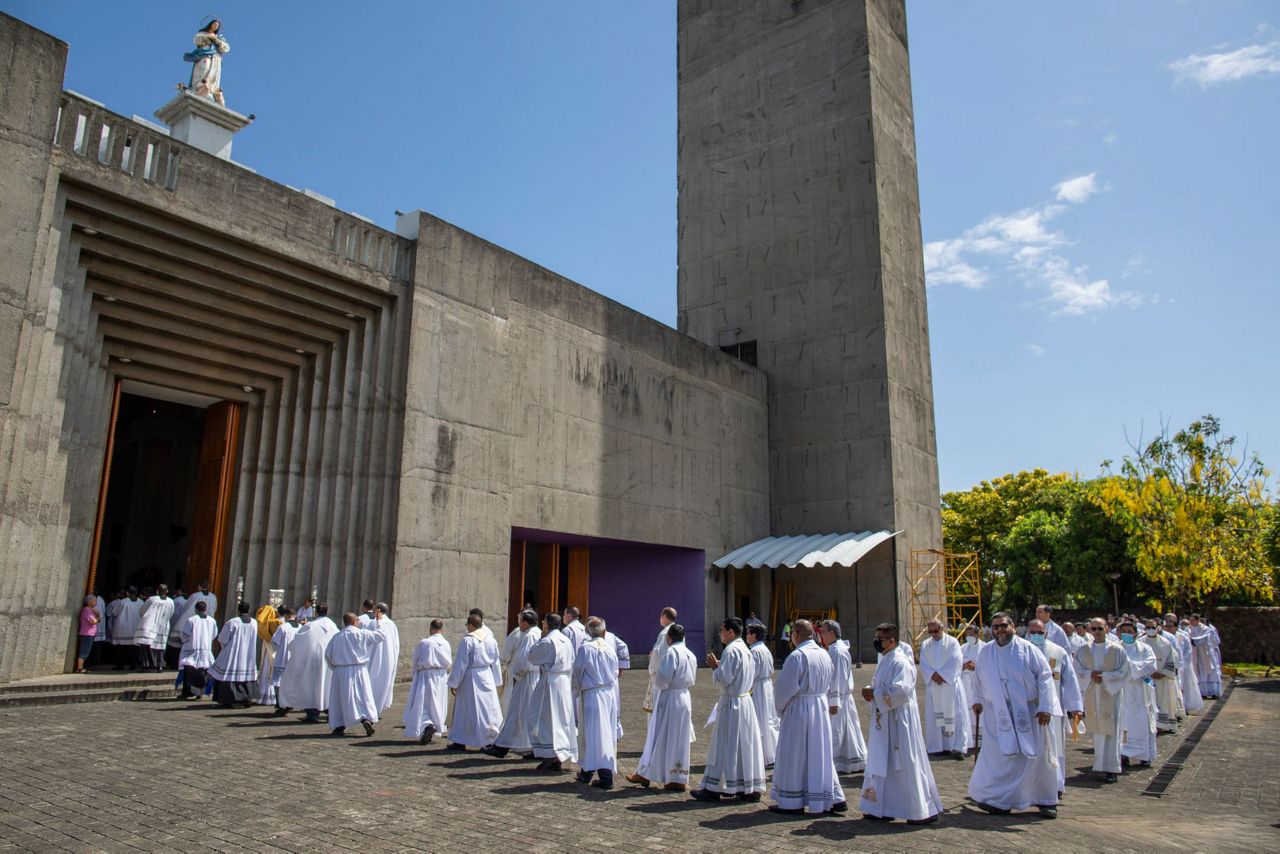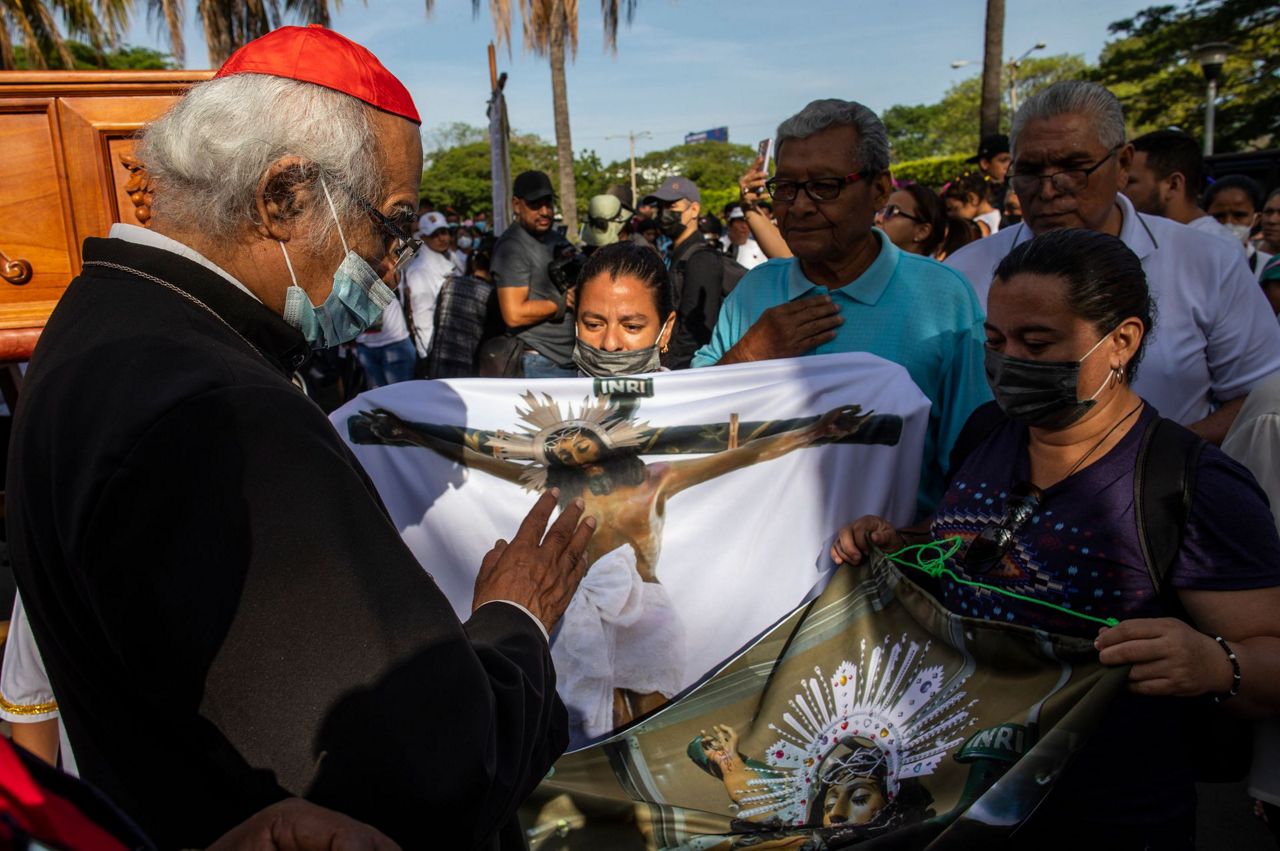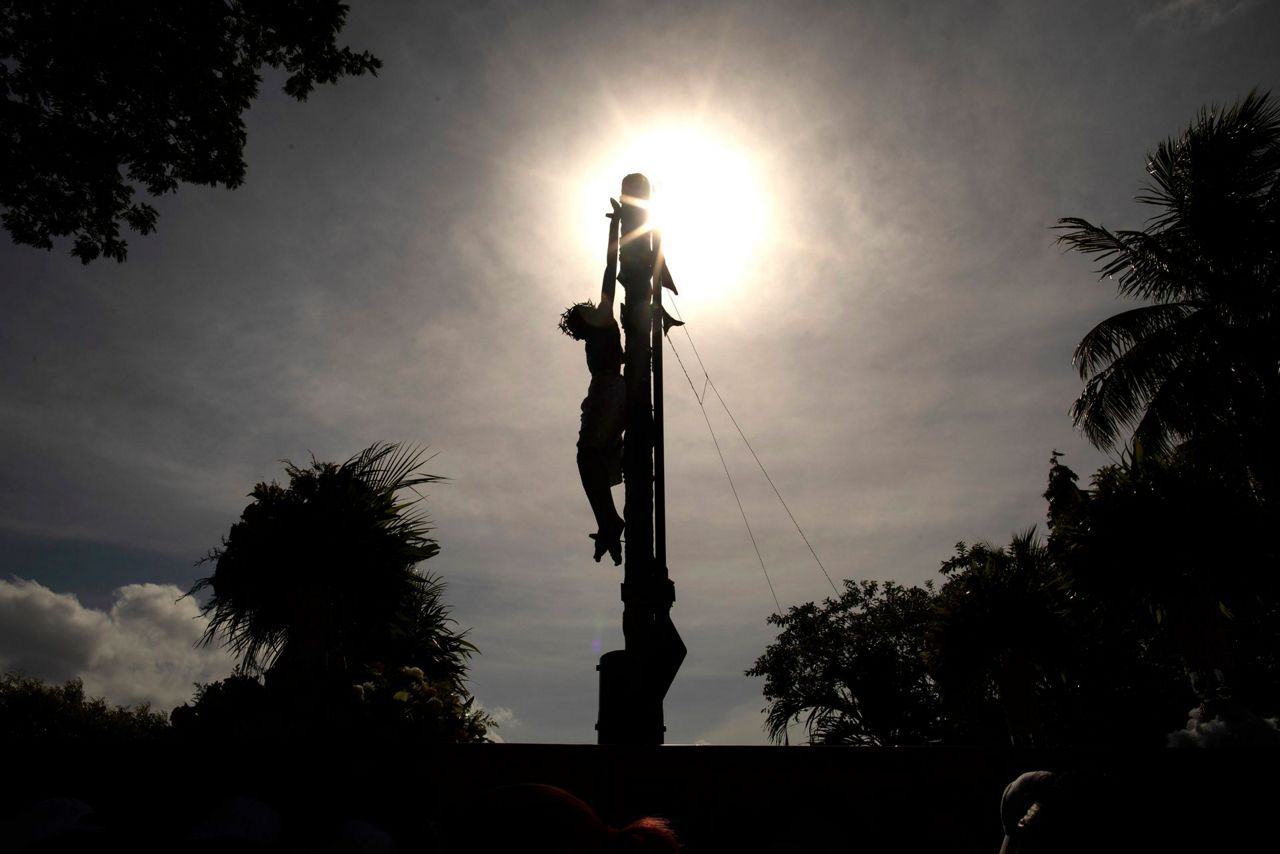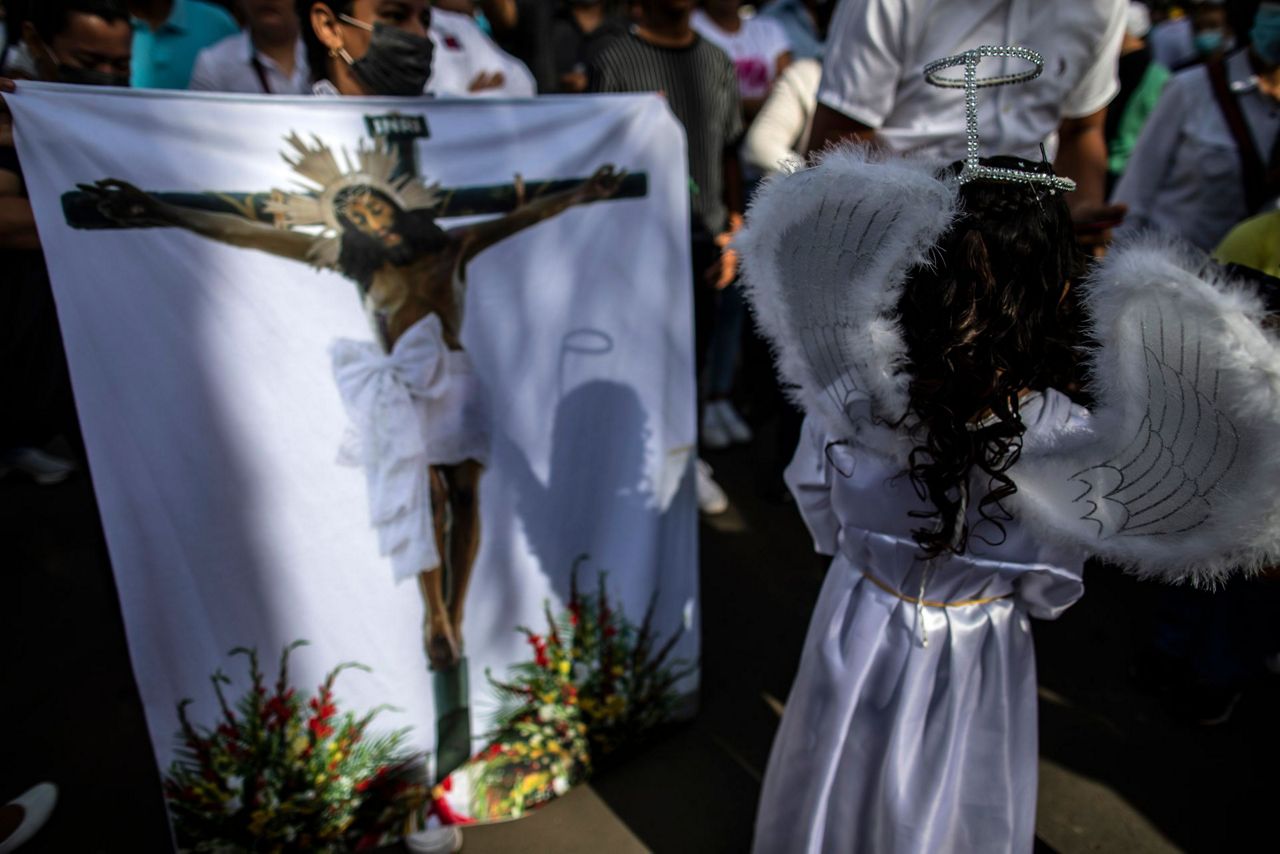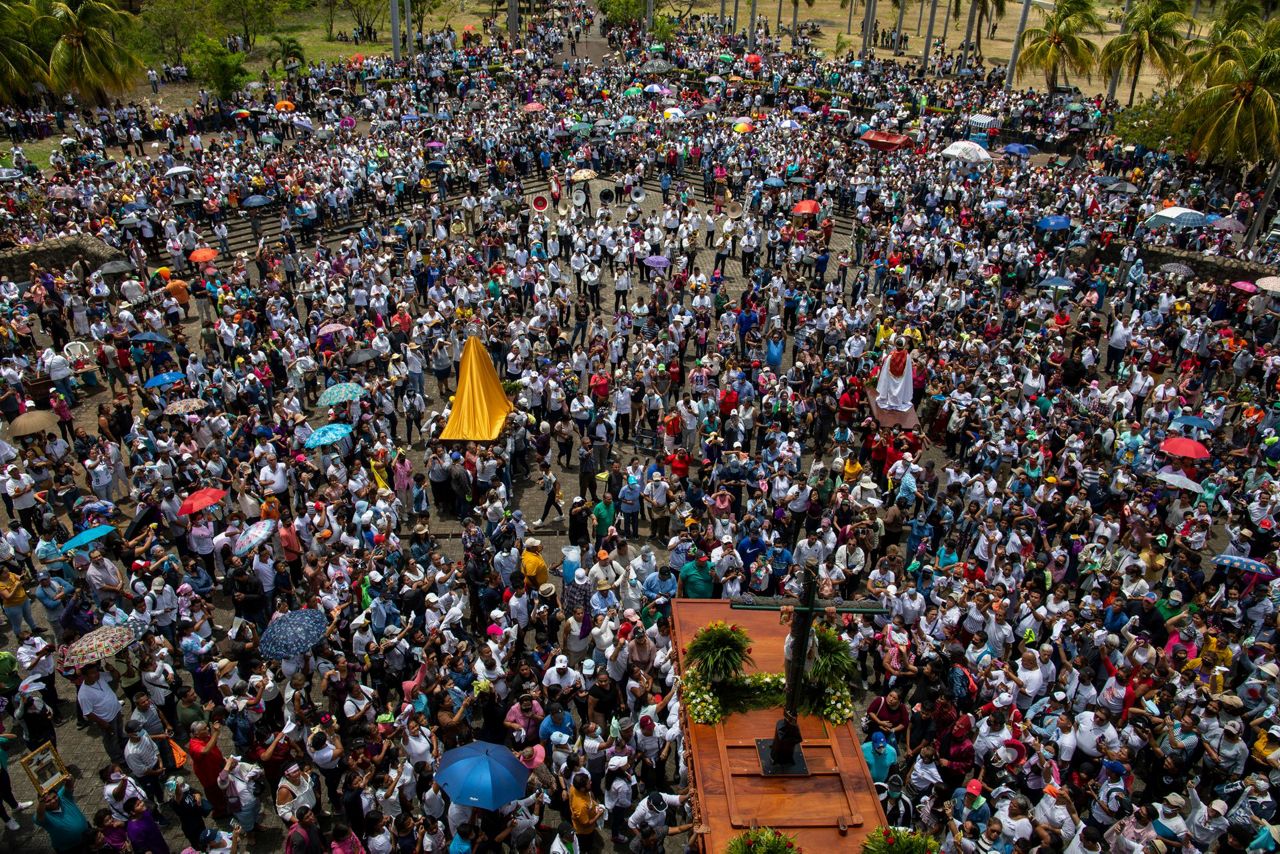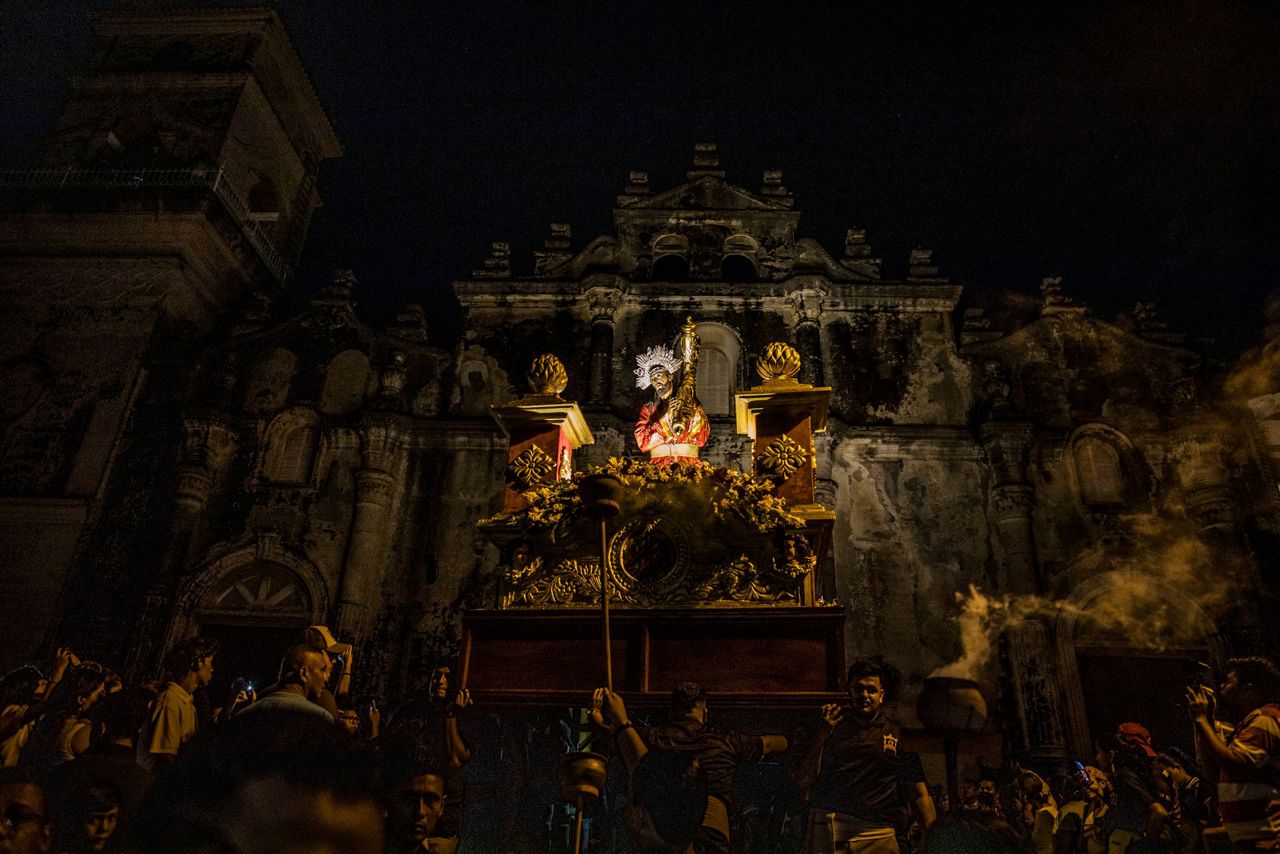MEXICO CITY (AP) — Roman Catholics in Nicaragua had to hold traditional “Stations of the Cross” and other Holy Week processions on church grounds or inside churches Friday amid a ban on public demonstrations.
Relations between autocratic President Daniel Ortega and the church have frayed to near non-existence since Nicaragua's government proposed severing relations and sentenced a bishop to 26 years in prison.
Cardinal Leopoldo Brenes told The Associated Press that celebrations were held throughout the country “near the churches.”
“In absolutely every parish there were celebrations,” Brenes said, though he added they went off “not with all the intensity” of years past.
Germán Miranda, one of hundreds of faithful who showed up for the procession at the Managua Cathedral, was one of those who found it less inspiring this year.
He said Holy Week celebrations were better in the past when they wound through the streets of the capital. “It was better before, because it was freer."
Miranda said he hoped the government and the church could “reconcile, to give us a better future.”
On Thursday, Ortega's wife, Vice President Rosario Murillo, lashed out at those who complained.
“We see it as part of a manipulation by those who do not believe in God, who do not live as Christians, who do not know how to be respectful or show solidarity,” Murillo said.
Earlier this week, the government expelled a Panamanian parish priest, Donaciano Alarcón, who police accused of holding an Easter-week procession and attempting to “stir up the people.”
Alarcón said police forced him into a patrol vehicle Monday after he celebrated Mass in the rural town of Cusmapa and drove him to the border with Honduras, “They made me cross and told me, ‘You are out of the country, and you can’t come back in,'” he told a radio station in Panama.
Alarcón denied lthere was any procession. “I did not lead a procession, because they are prohibited,” he said. “I was the first to tell people that there would be no procession.”
Since anti-government street protests broke out in 2018, Ortega has banned all opposition demonstrations in Nicaragua and has also restricted Catholic activities. He says Catholic figures sympathetic to the opposition are “terrorists.”
In March, the Vatican closed its embassy in Nicaragua after Ortega's government proposed suspending diplomatic relations, the latest episode in a years-long crackdown on the church.
Dozens of religious figures have been arrested or fled the country. Two congregations of nuns, including from the Missionaries of Charity order founded by Mother Teresa, were expelled last year, and Bishop Rolando Álvarez was sentenced to 26 years in prison after he refused to board a plane that would have flown him to exile in the United States.
Pope Francis had remained largely silent on the issue, apparently not wanting to inflame tensions, but in a March 10 interview with Argentine media outlet Infobae he called Ortega’s government a “rude dictatorship” led by an “unbalanced” president.
In Nicaragua “we have a bishop in prison, a very serious and capable man, who wanted to give his testimony and did not accept exile,” Francis said, referring to Álvarez. “It is something from outside of what we are living, as if it were a communist dictatorship in 1917 or a Hitlerian one in 1935.”
Copyright 2023 The Associated Press. All rights reserved. This material may not be published, broadcast, rewritten or redistributed without permission.



